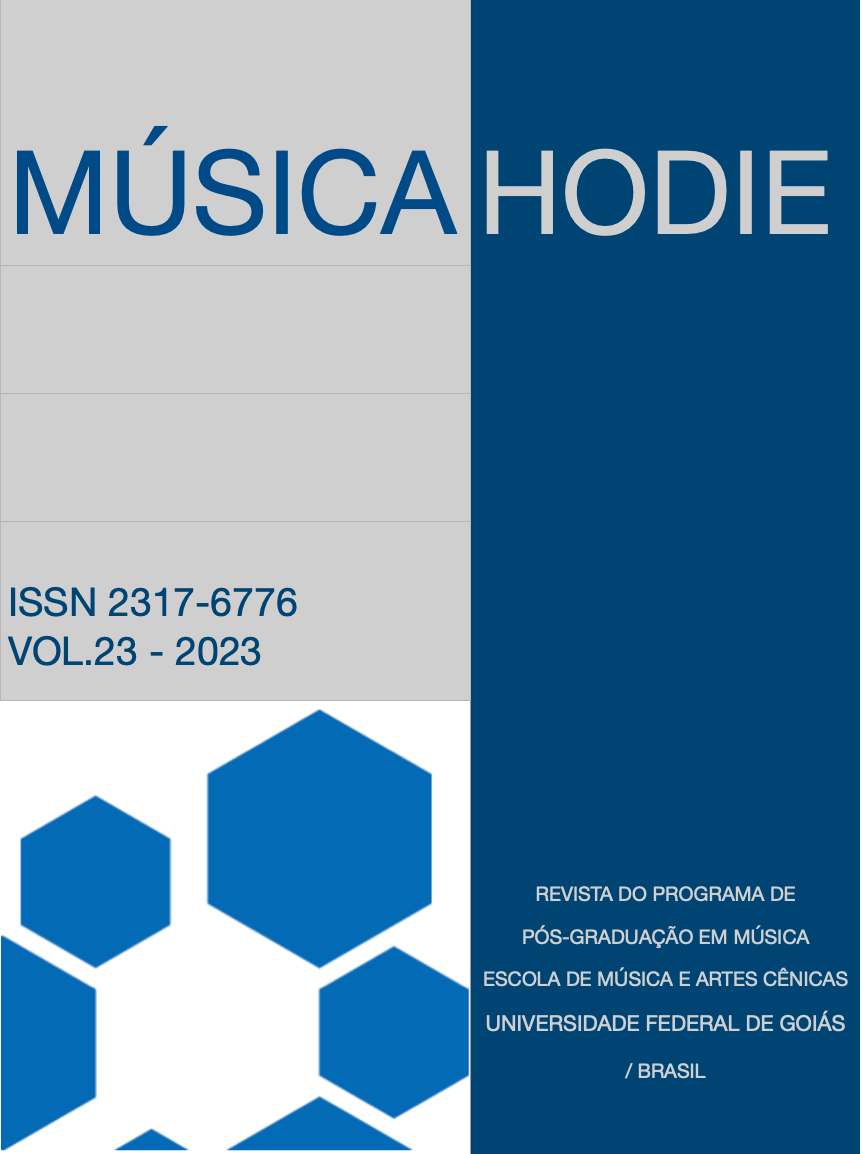Francisco Xavier Baptista’s keyboard works
Analysis and attribution of his last sonatas
DOI:
https://doi.org/10.5216/mh.v23.75308Keywords:
Analysis, Francisco Xavier Bachixa, Francisco Xavier Baptista, Keyboard sonata, Portuguese music, Sonata TheoryAbstract
The Portuguese composer Francisco Xavier Baptista (1741-1797) wrote sixteen keyboard sonatas, two of which are preserved under the name of Francisco Xavier Bachixa. From an analysis based on the Sonata Theory by Hepokoski and Darcy, this study identifies the characteristics of Baptista’s sonatas, as well as his sonata model: a cycle of two movements that ends with a minuet, this being representative of a clear formal transformation. Furthermore, the comparison of the single-movement sonatas indicated by the name Bachixa shows that these were the last works written by the composer and reveals a new formal and stylistic approach to the composition of the Portuguese keyboard sonata in the late 18th century.















